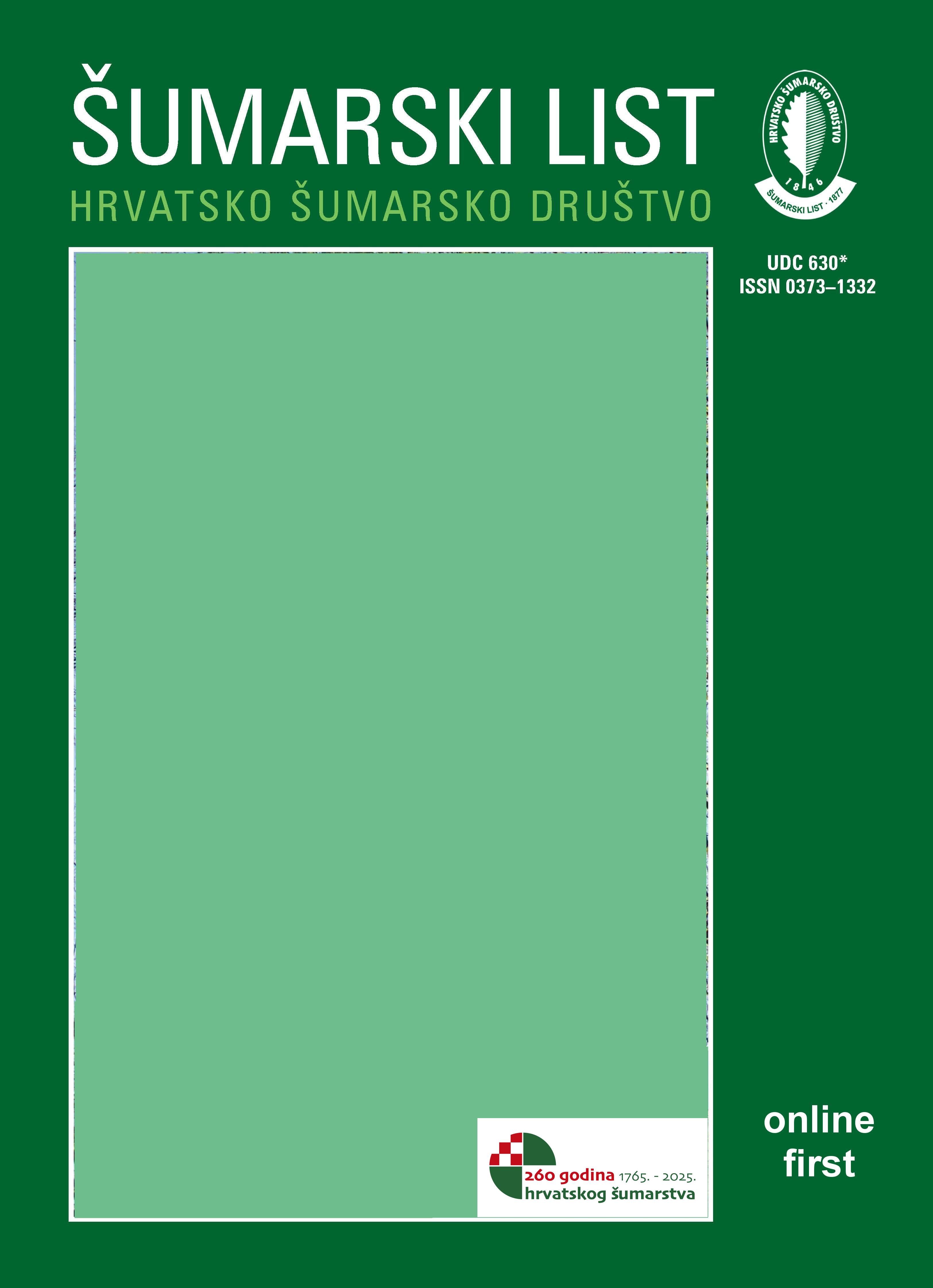Morphological and anatomical diversity of Juniperus sabina var. balkanensis in the Croatian Dinaric Mountains
Keywords:
cone morphology, Dinaric Alps, leaf scale anatomy and morphology, morphometric analysis, phenotypic variability, population variation, sexual dimorphismAbstract
Juniperus sabina var. balkanensis R.P.Adams et Tashev is a morphologically cryptic but genetically distinct tetraploid lineage, hypothesized to have originated through ancient hybridization between maternal diploid J. sabina var. sabina and a paternal ancestor related to J. thurifera L. Although its presence in Croatia has been confirmed, morphological and anatomical variability along the Dinaric range remains poorly understood. In this study, we analysed three natural populations from the Croatian Dinaric Alps (Biokovo and two sites on Velebit), comprising a total of 32 individuals. The aim was to assess intra- and inter-population variability, sex-based differences, and population × sex interactions, focusing on five vegetative traits and four cone traits. Our results revealed significant differentiation among individuals within populations for all measured traits, although variability was generally low to moderate, consistent with previous genetic studies. Statistically significant differences between populations were confirmed for four traits. Low to moderate intra-population variability and pronounced inter-population differences may reflect limited gene flow, clonal propagation, and inbreeding within fragmented habitats. Sex-based differences were observed in scale leaf number and leaf length; however, given the limited sample size and the presence of both monoecious and dioecious individuals, further research is needed to draw robust conclusions regarding sexual dimorphism. Overall, our findings contribute to a clearer understanding of the morphological variability of J. sabina var. balkanensis. Given its restriction to high-altitude, xerothermic habitats in the Dinaric Alps, this variety represents a valuable component of mountain biodiversity and should be considered in future conservation efforts targeting relict shrubland communities.
Downloads
Published
Issue
Section
Categories
License
Copyright (c) 2025 Igor Poljak, Gabrijela Svalina, Nives Vulama, Mia Radočaj, Kristina Buzina, Daniel Krstonošić

This work is licensed under a Creative Commons Attribution-NonCommercial 4.0 International License.


